
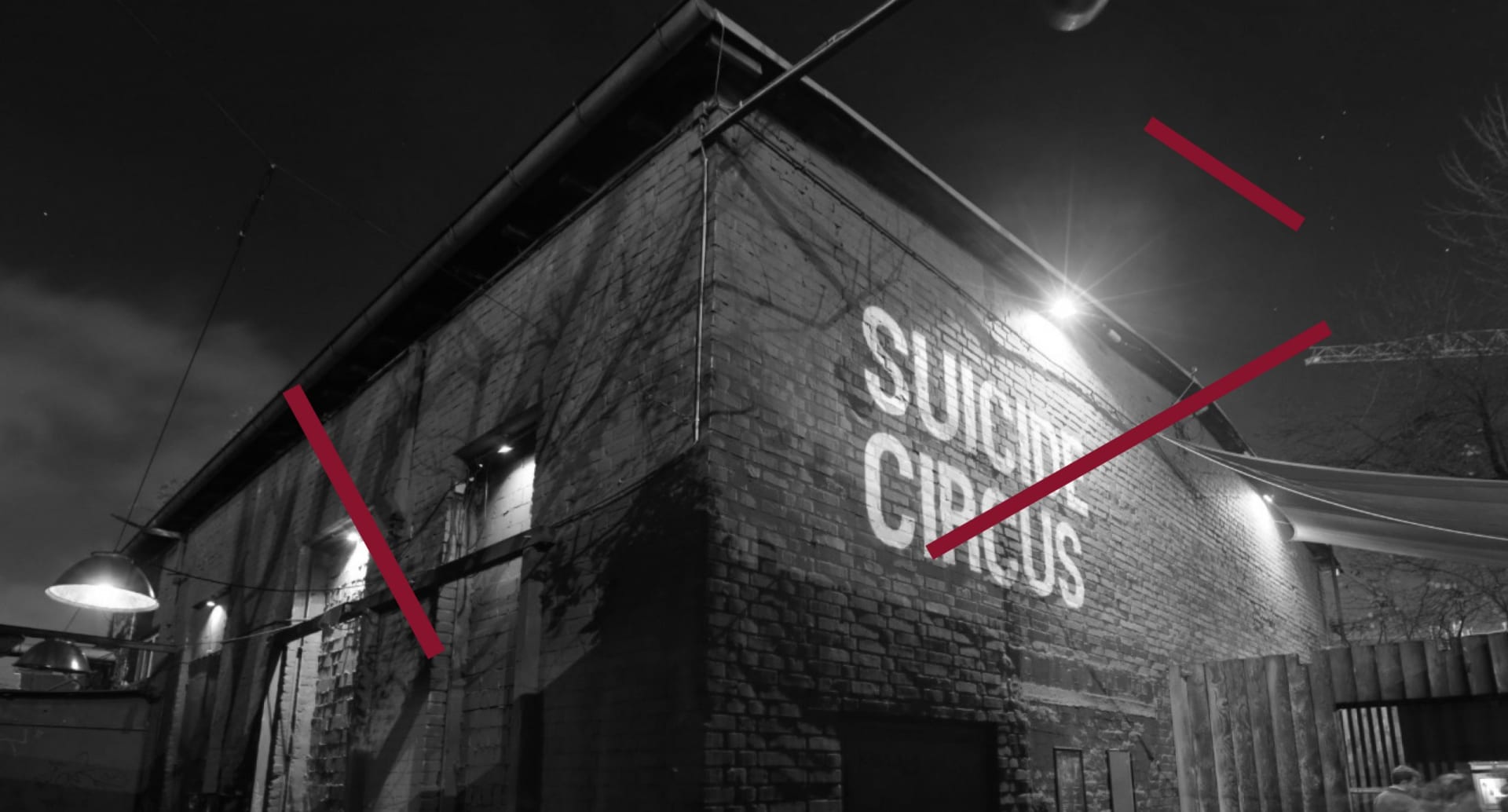
Berlin's Cultural Frontline Workers Forced to Choose Between Infection or Eviction
Cultural spaces in the German capital face scrutiny for throwing events while being given few options to stay afloat.
The morning of August 19 started out as a Wednesday like any other. Kate Coffee, the proprietor of the Kreuzberg cocktail bar John Muir, fed her cats, made pancakes, and sat down to check her email in the apartment she’s lived in, for over a decade, above the quaint red-bricked tavern’s street-level entrance. But her face fell when she saw a message from her landlord appear in her inbox. “Skalitzer Str. 49-52 Berlin: Fristlose Kündigung,” the subject line read. Termination without notice.
The eviction, which stipulated that Coffee vacate her home and business by September 2, came as a surprise. She had never received so much as a warning letter in the mail, and the €9,000 in pandemic assistance she received from Investment Bank Berlin (IBB)—granted to most struggling small business owners and freelancers over the course of the summer—went entirely to the rent she owed while she was forced to shut her doors without income during lockdown. “All of Berlin’s nightlife, bars, clubs and restaurants are in existential crisis,” she typed in response. “Please, I beg you, do not destroy my life. I do not deserve to be homeless in a global pandemic.” She closed her computer, broke down in a debilitating panic attack, and cried.
John Muir’s forced closure is just one of a legion of crises striking Berlin’s electronic music and nightlife-adjacent industries in the throes of COVID-19 and the limitations it’s placed on venues and touring artists. Many haunts that have served as regular meeting points for DJs, producers, and agents since the early 2000s—Muir has playfully been referred to as Berlin’s Cheers of techno—are appealing for donations or shuttering completely. Others have found alternative means of creating the income they need to pay the rent: outdoor raves or under-the-radar, limited capacity parties, some of which have been the subject of vitriol from fellow musicians, club owners, and cultural critics who see them as a cold-shoulder to a country still struggling to curb rising infection rates. Faced with insufficient government aid and the looming pall of gentrification, however, full-time artists and venues have few other measures at their disposal to make ends meet.
Coffee inveighs against the pressures put on her, and other members of the electronic music and industry-adjacent community, to keep their businesses afloat and meet rising financial demands that aren’t being bolstered by the German government. “I’m so angry that I was forced to open only three months into the pandemic,” she said during an estate sale she held at John Muir during its final week of business. She felt like she put her own health at risk, as well as her employees’, by opening up operations to the public just to scrape by on monthly payments and give her servers their take-home pay. As a small, independent business owner, she didn’t qualify for the funding supplied to enterprises with bigger space, a greater number of employees, and a more quantifiable cultural imprint. (Berghain, known to receive healthy tax accommodations from the German government, refused to comment for this article.)
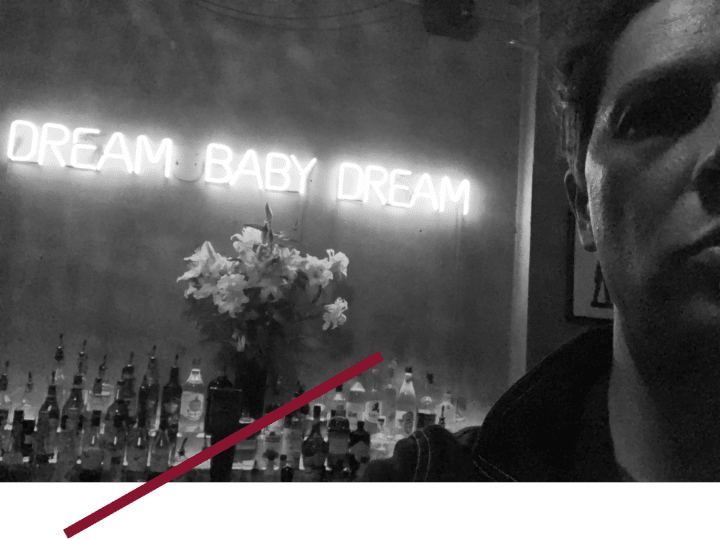
Andrew Jigalin, who manages Dream Baby Dream bar in Prenzlauerberg, shares Coffee’s lamentations. DBD, like John Muir, has grown its reputation as a community watering hole for Berlin’s electronic music industry. It grew from an aspiration more than twenty years in the making: Jigalin, a lifelong recording artist, wanted to create a “cutting edge” space that would marry his dual passions for music and hospitality. “I wanted to create somewhere where artists could go and feel like, ‘Fuck yeah. This is our fucking place.’” The drinks—The Brvtalist, Halvdrom, and Unhuman, to name a few—are named after the industrial DJs, producers, and artists who have been regulars since it opened in early 2018; pre-COVID, the glass- and concrete-enclosed foyer also accommodated DJs and live musicians at weekly events and record release parties.
“What we’re trying to do here is super important to me, and I don’t want to see it go,” Jigalin said. “It’s pretty frightening. If I get sick … I have a family. I have a wife and a two-year-old son who live upstairs. I couldn’t manage this bar. I don’t have a backup plan. There’s no safety net. I’m completely fucked.” Jigalin, unlike Coffee, did not qualify for government assistance after having made marginally more money over this summer than he did during the same period of time last year, his first few months open and an uneven start to a new business. Without freelancer aid, he’s not making enough to pay the rent. So when an opportunity arose to bartend a friend’s pop-up festival, Simulator, on September 5 in Lichtenberg, he couldn’t say no. “It pretty much saved us completely,” he said.
Similar open-airs, which have blossomed across Berlin’s beer gardens, empty industrial parks, and unused backyards (and which we covered in this in-depth feature), have been the subject of underground culture’s belligerent ire. Anti-ravers have argued that, at their worst, these parties prolong the pandemic, putting bartenders, custodians, and artists at risk of getting sick, and contribute to the ancillary loss of local small businesses and industry community bases. Pro-partiers have countered that these events buoy spirits depleted by months of social isolation and contribute crucial income to full-time performers and club workers who are otherwise indefinitely out of jobs. It’s easy to pooh-pooh sloppy frivolity, like the much-contested series of unmasked parties that dotted Hasenheide park over the warm summer months. But when the full, frightening precarity of the city’s music industry is put into perspective, it becomes easier to justify participation in events that might be dismissed in a city that isn’t fuelled so dominantly by nightlife and the club scene.
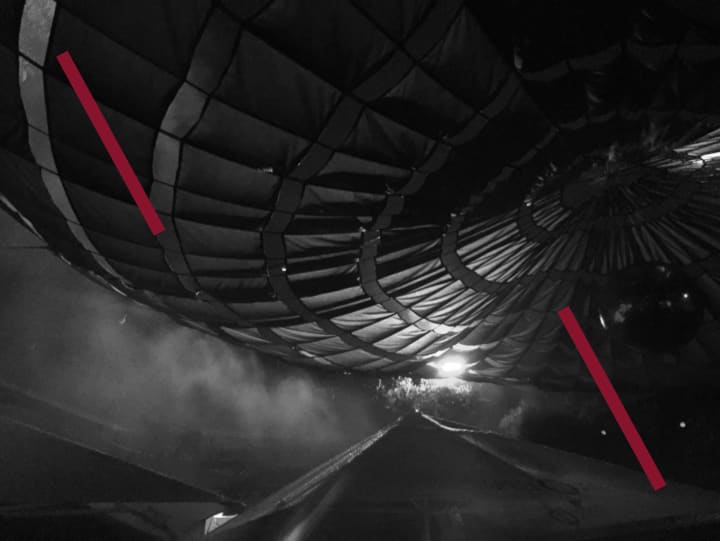
“We were already €100,000 in debt before the coronavirus,” Pat Flanders, the programmer and spokesperson for Suicide Club (formerly Suicide Circus), said. Since being allowed to reopen in early summer, the club has been supplementing its limited income from the beer garden with additional private, unpublished events in its rear outdoor space. Even when the weather cools off, Flanders concedes that the club will continue to throw these limited-capacity parties, published online as taking place in a “secret location” and then shared through Facebook messages and emails. “It’s a matter of survival for us,” he added. There’s a multitude of professionals whom Flanders and the club need to support: runners, barbacks, sound engineers, security. He rues that guests don’t always take social distancing and mask rules seriously, especially in the later hours as drugs and alcohol loosen people’s guards, but it’s a risk he’s forced to take when the alternative is missing a rent payment—while operating at a loss—and potentially losing the space, which has been around since 1994, for good.
In a way, the city has become a victim of its own success. As more people move there, the pressures on its spaces are greater.
It’s true that, compared to most countries, Germany has some of the most benevolent fiscal policies for artists and art-related businesses. It was also one of the first territories in Europe to set up aid programs (“Corona Soforthilfe”) for enterprises affected by the coronavirus pandemic, putting together a €600 billion bailout for large companies, a state-backed scheme offering quick loans of up to €500,000 to small and medium-sized enterprises, and a €50 billion hardship fund to give grants to small businesses, the self-employed, and freelancers. Applicants who have up to five employees could get up to €9,000, while small businesses with up to 10 employees were allowed up to €15,000. So why is it so difficult for Berlin’s musicians and small- and mid-sized business proprietors to keep their doors open?
One reason is that Berlin’s infrastructure is different from the rest of Germany’s. “Berlin has many small businesses and is characterized by sectors such as tourism, gastronomy, hotels, trade fairs and events, cultural businesses, and business-related services,” Claudia Davies from the IBB said in a recent interview. “That’s why this crisis is especially difficult for Berlin’s economy.” With a convoluted net of rules and unclear spending and tax specifications, the bailouts have also been difficult to navigate. Some freelancers, like Jigalin, narrowly miss the requirements for any emergency aid; others are receiving one-time payments, like Coffee, that might buy one month of rent, but make little difference for their long-term financial forecasts—if any at all.
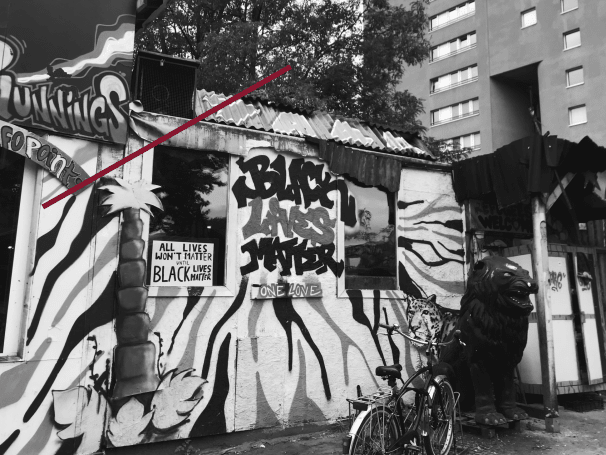
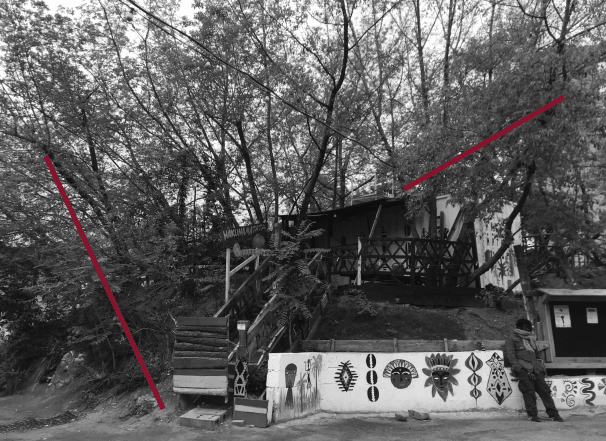
A second, more insidious, reason is that COVID-19—and its attendant financial hardship—has cleared a path for landlords to turn over coveted properties for at least two or three times their current listing prices. Foreign investment and gentrification has threatened the city for years. In 2018, Warren Buffett announced that his company, Berkshire Hathaway, would set up shop in Berlin with a local partner that promotes Berlin’s low prices to international clients; rents rose 56 percent between 2009 and 2014; purchase prices rose more than 70 percent. The increasing influence of the market has meant that neighborhoods like Kreuzberg and Friedrichshain, which have transformed from atrophied industrial badlands to hipster playgrounds, have become particularly vulnerable to turnover. Now that long-time renters can’t foot the bill, they’re being ousted for more lucrative opportunities.
Young African Art Market (YAAM), which has been home to African music, art, and culture for 27 years, is being slowly engulfed by the relentless advance of commercial hotels along the East Side Gallery. “We’ve already had to move locations six times,” the art director said. “This isn’t a money project—this is a social project. It’s a safe space for the Black community in the heart of Berlin, where investors are coming. It’s hard to survive.” YAAM’s website recently issued a plea for donations, citing unsafe building conditions and a long-term rental contract that’s now at risk of being denied. “Several YAAM construction projects have already been thwarted,” the administrators wrote. “The capital-controlled development of the bank [on the river Spree] continues unchecked. We will do everything in our power to withdraw this property from market exploitation and to secure culture and subculture at this location!”
It’s like someone threw a bowling ball and we’re all just pins falling down.
The infamous fetish space KitKatClub, which closed in June, is the most recent underground landmark to fold because of pressure from landlords, who purportedly want to turn the corner into luxury housing. Tresor recently published pleas for donations and even auctioned off time in its DJ booth. Watergate is also under duress from property owners who are expecting the rent to be paid in full throughout COVID-19 closures, unlike some other landlords who are accepting rent payments as late as 2021 with accrued interest. “It’s like someone threw a bowling ball and we’re all just pins falling down,” Coffee said of the mass evictions she foresees among the clubs, bars, and other nightlife venues that surround her own East Berlin establishment. The process of keeping a foothold in a property is idiosyncratic, and especially challenging for smaller spaces, as well as those without access to open air.
The convergence of the coronavirus with the real estate bubble could upset a delicate ecosystem that has pivoted on a fulcrum shored by tourism and a fully-employed creative class. “I’ve lost count of the number of conversations I’ve had about [Berlin’s] famed club culture—the freedom, the photo bans, the right to escape for a few hours,” says Emily Dust in BBC Radio 4’s new documentary on the current state of Berlin’s underground club culture. “But in recent years the types of conversations have changed: they were not only about freedom but about threats—in a way, the city has become a victim of its own success. As more people move there, the pressures on its spaces are greater.”
The threat to the electronic music industry in Berlin isn’t situational, but existential, the product of a city that became too cool too quickly, and relied too heavily on revenue that’s temporarily extinct. It’s now possible that the scene is on the threshold of a new era. As artist enclaves like John Muir begin to be replaced and musicians leave for more affordable pastures, the underground will become a quiet Kriegsfront. Artists, DJs, and the technical and service workers who support them will put themselves in harm’s way, waiting—one limited capacity party at a time—to fight displacement and the advancing economic and cultural overhaul that threatens to snuff them out.
Chloé Lula is a freelance journalist, DJ and producer based in Berlin. You can follow her on Instagram, Facebook and Twitter.
Photos courtesy of Dream Baby Dream, Suicide Club, and YAAM.
Published October 07, 2020. Words by Chloé Lula.









